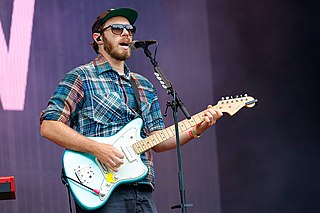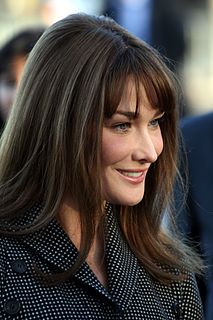A Quote by Alex Tizon
I didn't go into journalism thinking it would solidify my identity. I did it because I needed to make a living, and I was proficient in writing. But in becoming a journalist, I learned about other people who felt like they were on the edges of American mainstream life.
Related Quotes
I was born in the United States, I'm proud to be an American, I'm an American first. But obviously, I'm a Chinese-American. And growing up, my family, my parents, and I think rightly so didn't put us in Chinatown, didn't put us with our other ethnic group, but put us in mainstream America. They're thinking was that will help us assimilate into the mainstream and be a part of it. And it did. It certainly gave me tolerance of other people, of other races, of other ethnicities and I think that's helped make me a better person.
I reluctantly signed up for a journalism major, thinking I needed a fall-back way to make money should my career as a novelist fail to take off. As I started to try on journalism, including doing internships and working at the campus paper, I found I actually liked it. So I started to want to be a journalist.
I made a note in my head to be aware of things as they were happening, because they might not happen again. Up to that point, I was not really that appreciative of what was going on, or thinking about documenting life in a plainspoken manner. I was talking about my life and writing songs, but then I would go back and listen and they were about dreams, and legends, and metaphors and that was just not my life!
From about ninth grade on, I knew I was a writer at heart. I had fantasies of being a great novelist, but I thought that seemed like an iffy way to try to make a living. So I tried journalism while in college, and really liked it. But even in journalism, I've always pursued ways to be somewhat literary, whether writing a column or writing books.
Almost everything I've learned about journalism has been from other friends who are journalists, taking advantage of the money I hope they don't think they threw away at j-school. I studied comparative literature, but the professional vagaries of journalism I've learned through other people's trial and error, and my own.
I've always been a writer. I started getting paid for writing in college. Where it transitioned from commentary to journalism was in that shift - not wanting to write personal stories because people are hungry in not necessarily great ways for the sexy, sexy, sex work story. I was trying to shift the focus, and journalism was the tool I needed to write about people outside my own life and range of experience.
The difference is in Hostel it's in the theatre - it's in public but it's in a private place. You have to actively make a choice to want to go see it. It's not being forced on anyone. Whereas 24 you can be flipping channels and it's right there in your living room. Anyone has access to that. But that just shows how mainstream it is and how people are seeing this stuff on YouTube. People are scared of it. This is a subject matter that everyone's talking about and everyone's thinking about, particularly in American culture.
Now I'm not going to go, "Oh my God, what are people saying about me?" I had a choice to be a student and not become a model, and becoming a doctor was another one of my dreams. I had a choice between not becoming a singer or becoming a songwriter and writing behind the scenes; nobody would have seen me writing songs for other people. I had the choice of not marrying my man; we could have just been hidden lovers, but I couldn't cope with it. I had these choices to do all these things, so I'm not going to cry over a life which has been really lucky.
In a sense, journalism can be both helpful and detrimental to a writer of fiction because the kind of writing you need to do as a journalist is so different. It has to be clear, unambiguous, concise, and as a writer often you are trying to do things that are more ambiguous. I find that writing fiction is often an antidote to reading and writing too much journalism.

































